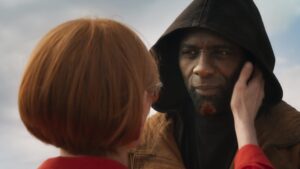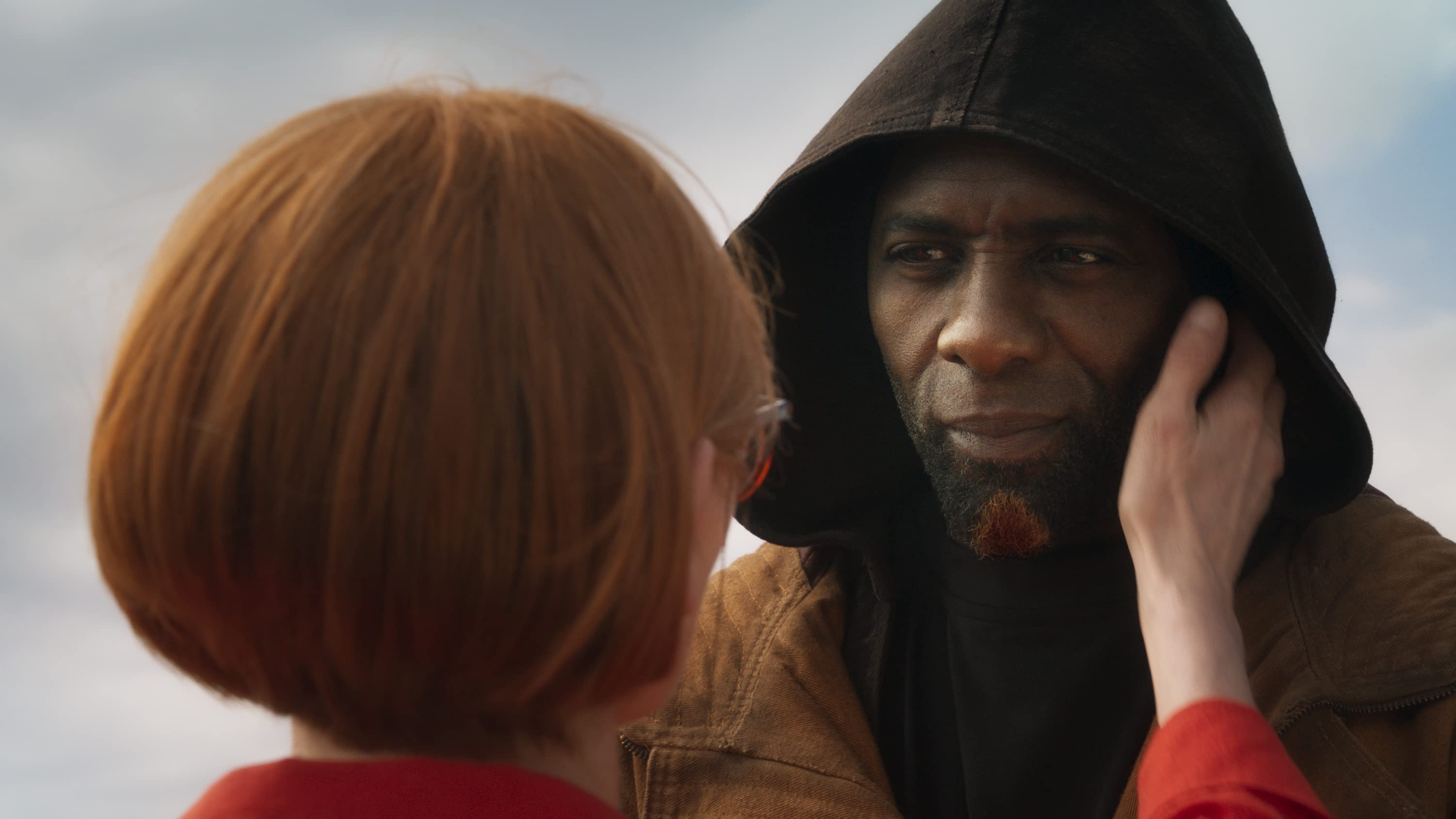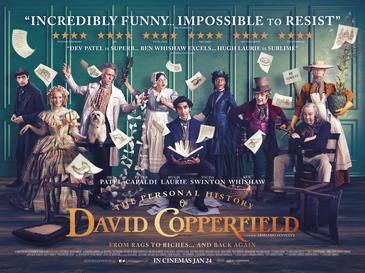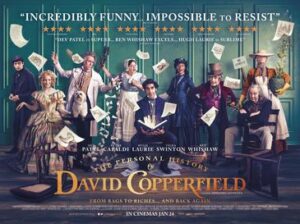Three Thousand Years of Longing
Posted on August 25, 2022 at 5:44 pm
B +| Lowest Recommended Age: | Mature High Schooler |
| MPAA Rating: | Rated R for some sexual content, graphic nudity, and brief violence |
| Profanity: | Some strong language |
| Alcohol/ Drugs: | Drinking and drunkenness |
| Date Released to Theaters: | August 26, 2022 |
| Date Released to DVD: | November 14, 2022 |

But, as Alithea (Tilda Swinton), a distinguished professor of stories (narrative) who specializes in fantasy, explains, there is no story about wishes that is not a cautionary tale. And thus, when she has the opportunity to use three wishes to fulfill her heart’s desire, she instead sits down with the djinn (genie) who has come out of her bottle, to hear his stories. As they sit, improbably, in white terrycloth robes in a luxurious Istanbul hotel room, he tells her of the wishes he has granted and the people who made them. And yes, they are all cautionary tales. Is wishing itself, the idea that we can escape the reality of time and the laws of physics and the limits of human power, so inevitably doomed by hubris?
Alithea tells us that the story we will hear is true, but that we will better receive it as fantasy. She also tells us that she is a solitary person, and happy to be so. That, in itself may be a fantasy, though she may not be willing to acknowledge it. I note here that the name Alithea is from the Greek word for fact or truth. And that this story is based on The Djinn in the Nightingale’s Eye, the title story in a book of fairy tales for adults by A.S. Byatt. Alithea begins by telling us of magical-sounding wonders, humans hurtling through the air on metal wings or walking under water with webbed feet, with images reminding us of Arthur C. Clarke’s observation that “Any sufficiently advanced technology is indistinguishable from magic.”
On her way to the conference, Alithea sees, or thinks she sees, a small, possibly magical person. And then, when she is on stage, she sees another mythical being. Is she jet-lagged? Is she losing her mind? Or is she opening herself to what the rest of us refuse to see?
She buys an antique glass bottle, telling the seller that it looks like it has a story. Back in her hotel room, she begins to clean it with her electric toothbrush. The stopper falls out, smoke appears, and a giant hand reaches into the bathroom. It is a djinn (Idris Elba), and he has been inside the bottle for a very long time. Alithea would rather hear his stories than make a wish.
George Miller, the visionary writer/director behind the Mad Max and Babe movies, has a gift for wonder. Somewhere between the dystopian world of Fury Road and the endearing charm of “That’ll do, pig,” is this film, with striking, gorgeous images and swoon-worthy stories of passion — romantic, ambitious, angry, jealous, lustful passions.
Three Thousand Years of Longing goes back and forth between the hotel room conversation and the stories of the wishes the djinn has granted, his repeated returns to confinement and how his adventures have forms his view of humanity, The djinn needs Alithea to make three heartfelt, personal wishes to gain his freedom. She insists that she has no wishes and certainly no wish to become ensnared as those who have tried to gain without effort.
The stories are dark at times, but always gorgeously filmed and resonant. And the end is surprisingly tender, perhaps reflecting the one wish all people share if we are brave enough to admit it.
Parents should know that this film has nudity and sexual references and situations, drinking and drunkenness, and violence, some grisly.
Family discussion: What would you wish? What is your favorite fairy tale and why?
If you like this, try: the book by A.S. Byatt, “The Wonderful World of the Brothers Grimm”



